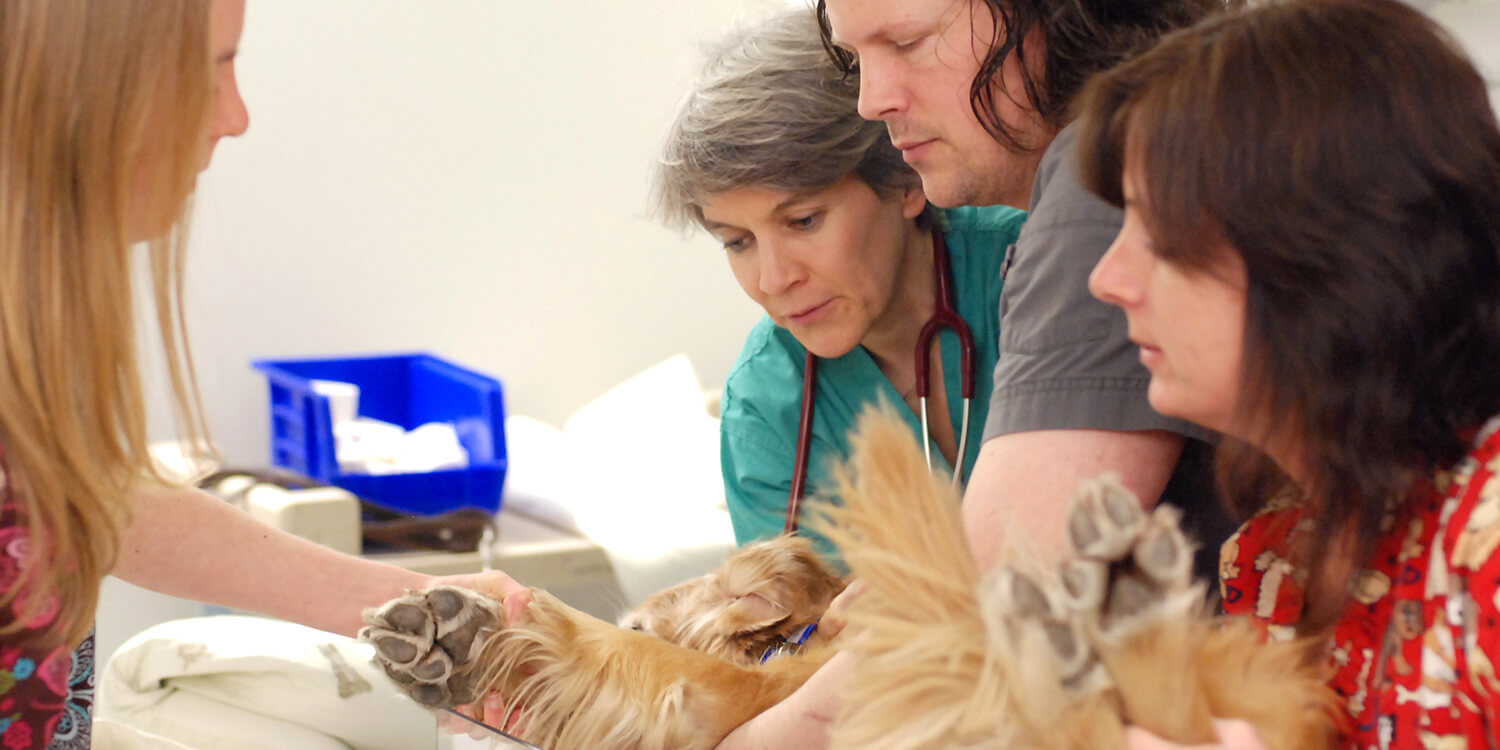Development of engineered T cell therapy for cancer in companion animals

To develop a canine cellular immunotherapy core and generate T cell therapies that will allow us to leverage spontaneous canine cancer models to inform human clinical trials and advance veterinary applications.
This project will permit rapid evaluation of next generation T cells in large animals with spontaneous tumors and will be particularly valuable in the testing of T cells with combinatorial checkpoint deletion and the evaluation of various gene editing tools (ZFNs, TALENS and CRISPR) as a step to human trials.
Goals:
- To develop specific canine CAR-T cell programs aimed at advancing the scope of human CAR T cell therapies via novel targets and gene-editing techniques for B cell malignancies and solid tumors.
- To develop the infrastructure for producing canine gene-modified T cells
- To develop a tool box for ex vivo expansion, gene-modification, gene-editing, and phenotyping of canine T cells, comparable to those present for human T cells
- To investigate stably-transduced CART cells in dogs for efficacy and safety
- To apply next-generation technologies to the canine cancer immunotherapy program
Accomplishments:
- A canine pheresis core has been developed at Penn Vet
- Generated canine normal tissue microarray to evaluate potential toxicity
- Developed a method for canine T cell purification from apheresis product
- Developed SOPs for activating, transducing and expanding canine T cells ex vivo for adoptive immunotherapy
- Generated tools to validate canine cellular targets for in vitro assays
- Developed a canine specific qRT-PCR to determine genomic copies of CART cells costimulated
- Generated human CART cells specific for canine CD20, HER2, and IL13RA2 to evaluate xenotransplantation as a method to treat dogs and to also model UCART allogeneic donor T cell transfer/rejection
Project Participants: Carl June, Avery Posey PhD, Nicola Mason, BVetMed. PhD, Dan Powell, Anže Smole, Denis Migliorini, Brittany Gardner, Fang Liu, and Hyeon-Gyu Shin

